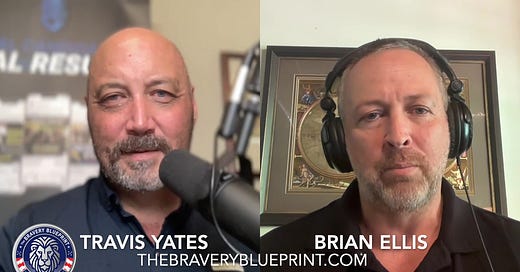Welcome to a transformative discussion on leadership, engagement, and the impact of toxic leadership within organizations.
Understanding Toxic Leadership
Toxic leadership is a prevalent issue in law enforcement. It manifests in various forms, including micromanagement, lack of support, and poor communication. These behaviors create a hostile work environment, leading individuals to feel undervalued and disheartened.
Addressing toxic leadership is essential for fostering a culture of engagement. Many organizations are recognizing the need to evaluate their leadership styles and practices critically. By doing so, they can identify issues that may be contributing to a toxic environment and work towards creating a more positive workplace culture.
The Role of Courageous Leadership
Courageous leadership is about inspiring others to lead with integrity, empathy, and a commitment to the well-being of their teams. It requires leaders to be self-aware, to recognize their impact on others, and to take responsibility for their actions. This kind of leadership encourages open communication and fosters trust among team members.
In "The Courageous Police Leader," the Travis Yates emphasizes the importance of transformational leadership in policing. By adopting a courageous approach, leaders can inspire their teams to engage more fully with their work and the community. This not only enhances the effectiveness of the organization but also contributes to a more positive public perception of law enforcement.
Strategies for Enhancing Engagement
To combat disengagement and create a culture of engagement, organizations can implement several strategies:
Foster Open Communication: Encourage team members to share their thoughts and ideas without fear of judgment. Open communication helps build trust and promotes a sense of belonging.
Provide Support and Resources: Ensure that employees have the tools and support they need to succeed. This can include training, mentorship, and access to resources.
Recognize and Reward Contributions: Acknowledge the hard work and achievements of team members. Recognition can significantly boost morale and motivation.
Create Opportunities for Growth: Encourage continuous learning and professional development. Employees are more likely to engage when they see opportunities for personal and professional growth.
Lead by Example: Leaders should model the behaviors they wish to see in their teams. Demonstrating commitment, integrity, and accountability sets a standard for others to follow.
Building a Culture of Courage
Creating a culture of courage within an organization involves more than just implementing strategies. It requires a commitment from leadership to embody the values they wish to instill in their teams. Leaders must be willing to have difficult conversations, address toxic behaviors, and promote a culture of inclusivity and support.
When leaders prioritize engagement and take active steps to combat toxic leadership, they create an environment where employees feel valued and empowered. This, in turn, leads to increased productivity, improved morale, and a more positive organizational culture.
Conclusion: The Path Forward
In conclusion, the journey towards courageous leadership and enhanced engagement is ongoing. It requires dedication, self-reflection, and a willingness to challenge the status quo. By addressing the issues of disengagement and toxic leadership, organizations can create a thriving environment where individuals are inspired to lead courageously.
The responsibility lies with each leader to take action and foster a culture of engagement. As we move forward, let us remember that every small step can lead to significant change. Together, we can inspire others to lead courageously and create a brighter future for all.
Travis Yates is the co-author of “The Courageous Police Leader” and has been training risk management and leadership for over two decades that have spanned thousands of students and 48 states. After dedicating over 30 years to the law enforcement profession, he is now working full-time consulting and training law enforcement leaders across the country.
Brian Ellis is a retired law enforcement lieutenant with over 25 years of service. He is the co-author of “The Theory of Magnus Ovea”, and his dedication to the theory of leadership led him to the National Command & Staff College, where he and his colleagues launched MAGNUSWorx, an education and data analytics platform dedicated to peak performance and wellbeing. Brian is a speaker, coach, and trainer for government and private organizations, dedicated to promoting leadership, high-performing teams, and providing others with actionable information for personal preparedness and resilience. His work has been featured in various media outlets, including numerous articles, book chapters, and podcasts.













Share this post